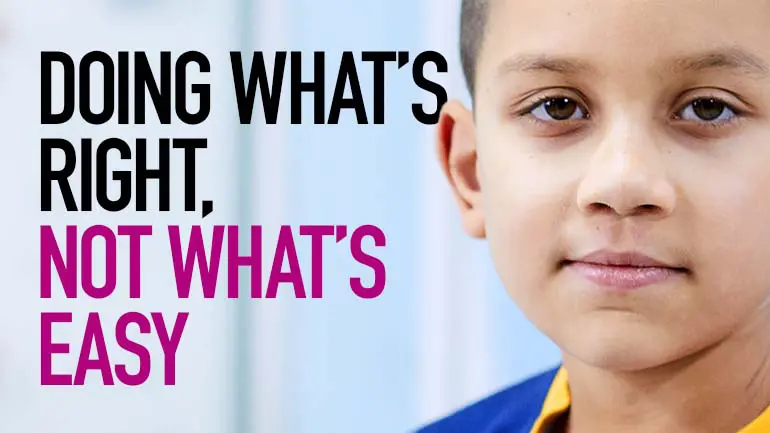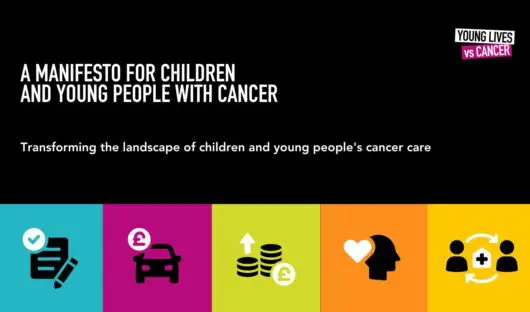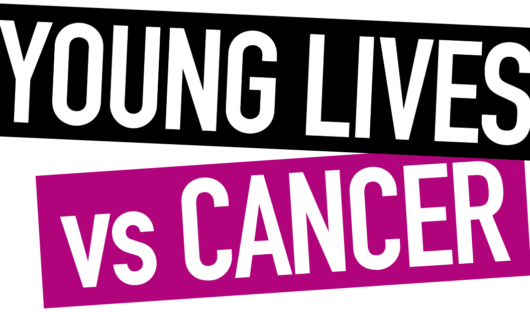Posted on Friday 29 October 2021
Difficult choices to rovide support through the pandemic
- Leading cancer charity launches first digital impact report showing how it transformed itself and ways of working as Covid-19 had a devastating impact on income
- In 2020/21, the charity helped 6,500 families face cancer, provided 4,932 grants equating to £1million and gave 170 families a free place to stay for 299 nights in its Homes from Home
- 84% of young people said they were helped by Young Lives vs Cancer to get their life back on track after cancer
- Charity used digital innovation, partnership working and internal changes to maximise its impact when it was never more needed.
The charity Young Lives vs Cancer, had to ‘do what was right, not what’s easy’ to be there for the people who needed it, its new Impact Report reveals.
In the new digital report, which aims for transparency, the UK’s leading charity for children and young people with cancer, acknowledges having to make some brave changes over the past year, to continue to be there for families facing cancer and everything it throws at them.
In the report, Young Lives vs Cancer shares how it adapted its services to be there for young people and families during the pandemic, and how its supporters continued to raise money. The report, which launched on the charity’s website today (Friday 29 October) as a multimedia digital timeline, features videos from children, young people and families who were supported throughout the pandemic as well as Chief Executive, Rachel Kirby-Rider.
The need for the charity’s support was in greater demand than ever before but, being funded 100 per cent by voluntary donations, Young Lives vs Cancer had to adapt quickly. With major events, sports challenges and galas cancelled, door-to-door fundraising stopped, its volunteers could no longer help and its charity shops closed, all while facing a £9 million drop in income.
The report celebrates the way the charity radically changed the ways it worked, creating a new fully-developed digital social care model, creating new innovative fundraising campaigns, streamlining and refocusing its own strategy, while changing its name from CLIC Sargent.
The charity’s staff stepped up, to continue to be there and provide vital services. Social workers could no longer support from the wards but would instead keep in touch through other means. From Whatsapp-ing young people, phoning parents as they sat in a car park waiting for the child having treatment alone and organising online craft sessions, quizzes and chats. The support provided helped families cope with new challenges such as liaising with employers about furlough, speaking to schools about their child’s education, ordering food deliveries and generally being a listening ear when families struggled.
The charity also worked hard to keep as many of its 10 Homes from Home open across the UK. Staff had to quickly roll out risk assessments, health and safety protocols and Covid-19 regulations. They worked alongside local NHS staff to make sure protocols were covid compliant. All homes ran on reduced capacity, and families had to self-isolate in their rooms. While this wasn’t easy, it was what needed to be done to keep everyone safe.
In total, Young Lives vs Cancer supported 6,500 families facing cancer, provided 4,932 grants equating to £1million to help families face the financial impact of a cancer diagnosis and gave 170 families a free place to stay for 299 nights in its Homes from Home.

'Doing what's right, not what's easy'
In a survey in February 2021, 84% of young people said they were helped by Young Lives vs Cancer to get their life back on track after cancer, which was significantly higher than when the charity asked in 2019. 61% of parents were helped to adjust to life after their child’s cancer treatment. This is slightly lower than when last asked in 2019 – a figure the charity say they want to see higher in future.
And in what has now become a tradition with the charity’s focus on transparent and honest impact reporting, again this year it identifies three areas that they didn’t get right and want to do better on.
Chief Executive of Young Lives vs Cancer, Rachel Kirby-Rider, said: “This year’s Young Lives vs Cancer impact report details how we adapted as a result of the global Covid 19 pandemic so we would continue to be there for families, who needed us more than ever.
“The Charity faced a drop in income, the cancellation of fundraising events, closure of charity shops and a stop to volunteering. The young cancer patients and families we support faced job cuts, school closures, at a time where they experienced increased vulnerability, anxiety and isolation due to Covid. It was vital that we were focused on ensuring throughout we were there for them.
“Despite the challenging environment we pulled together as a team to reprioritise our strategic approach and made some difficult but brave decisions that would enable us to navigate the pandemic and be in the best place to build back. From changing our name, to adopting new digital channels to developing and launching our partnership with Teenage Cancer Trust and Ellen MacArthur Cancer Trust, every decision we made was done to make sure that it would deliver the biggest impact possible for children and young people with cancer.
“I am very proud that at Young Lives vs Cancer we have a commitment to transparency and so are brave enough to acknowledge what didn’t work, what could have been done better, and the challenges we faced. We had to make some very difficult decisions, but it is important to do what was right, not what is easy. Whatever the next year brings we will face it all head on and we’ll continue to do what is right for the young people and families we support.”
“You have no choice”
One story featured in the report was that of 12-year-old Maisie. When she was set to have a stem cell transplant from her sister, Cecily, in March 2020, her Mum turned to their oncologist, worried the start of a global pandemic wasn’t the right time to wipe her immune system. “You have no choice,” he replied. For the following eight weeks, Maisie and her Mum sat in an isolation room, they couldn’t see any family or friends and her Dad could only ever come by to drop off clean laundry. It wasn’t easy, but it was right for Maisie.

Maisie and her Mum, Sarah, had to isolate for weeks during the pandemic while Maisie had a stem cell transplant
Families like Maisie’s had no choice but to continue facing cancer, despite it not being an easy time. So, Young Lives vs Cancer had to continue to be there for people who needed them, like Maisie, even if it wasn’t easy.
In the videos, Jeremy, 13, Helen, 25, Maisie, 13 and Mum Sarah share their experiences of how Young Lives vs Cancer supported them while facing cancer as a young person and juggling the impact of the coronavirus pandemic.
The charity knew that many families, like Maisie’s, now had the added anxieties of job cuts, school closures, food deliveries, isolation and increased vulnerability to infection, to think about on top of their child’s cancer diagnosis. 52% of families supported felt they were not coping well with the pandemic and 53% needed more financial help to manage their day-to-day living costs. Young Lives vs Cancer had to make brave changes to be there for families.
Throughout the year, Young Lives vs Cancer made some big changes, to create a bigger impact for the young people and families it supports. In February 2021, Young Lives vs Cancer formed a partnership with fellow cancer charities Ellen MacArthur Cancer Trust and Teenage Cancer Trust.
As the report says: “Working together meant we could all play to our strengths – reducing duplication and increasing efficiency, so that between us, we can be there for all families facing cancer in any way they need.”
In May 2020, the charity also decided to change its name. Following discussions with people who know the charity best; fundraisers, families supported, staff and volunteers, CLIC Sargent became Young Lives vs Cancer. Research showed that the change would increase people’s understanding of what the charity does, increase the number of people that would donate, and make them easy to find for those who need support.
To keep to its promise of transparency, the impact report also acknowledges what they have not yet achieved. In its last strategy the charity set out aims to improve diversity and inclusion, the charity has made steps – with the recruitment of their Head of Diversity, Equity, Inclusion and Belonging and the development and launch of its own ambitious DEIB strategy. Young Lives vs Cancer has also begun a project to understand its ecological impact, to become an environmentally sustainable organisation.
Related Posts
Young Lives vs Cancer calls on the next Government to commit to transforming the experiences and futures of children and young people with cancer
Young Lives vs Cancer is calling on all political parties to commit to five key areas to ensure children and young people with cancer get the support they need
Statement in response to UK Government consultation on changes to Personal Independence Payment (PIP)
Young Lives vs Cancer responds to UK government launch of consultation seeking views on proposed changes to Personal Independence Payment (PIP)

